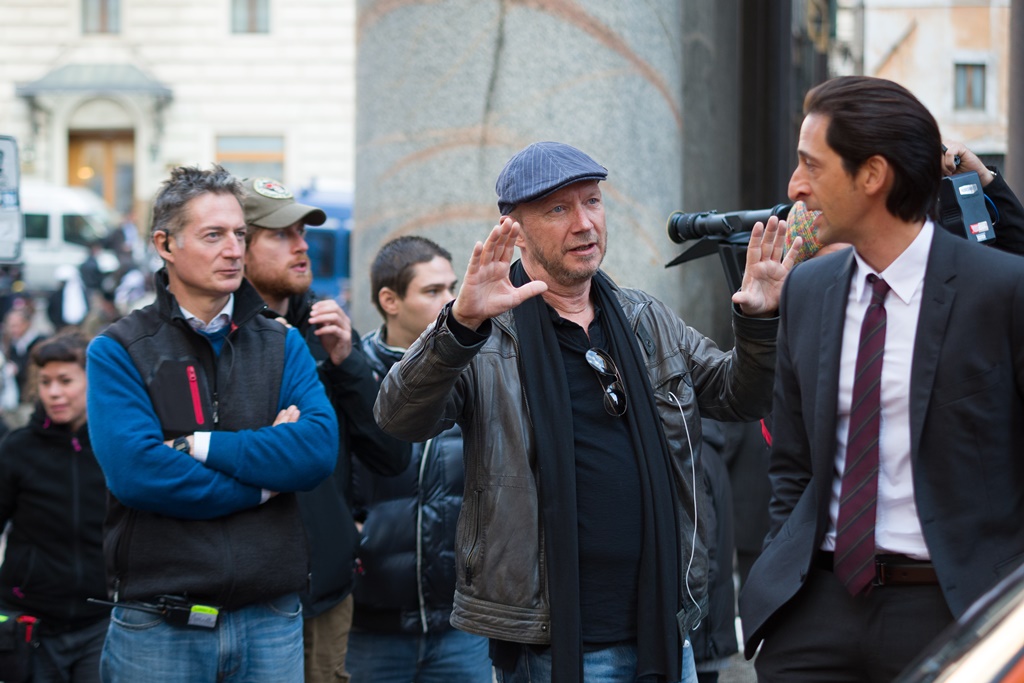Paul Haggis, the Oscar-winning writer and director who penned Million Dollar Baby and directed his own screenplay for Crash (movies that won consecutive Best Picture Oscars in 2005 and 2006), has maintained a lower profile in the last few years. And while his success in the last decade afforded him ample opportunity to become a commercial Hollywood director, he instead chose to focus his energies on a decidedly personal project.
His new picture, Third Person, was a six-year labor and at least partly about his own search for answers in both love and his process as a writer, starring Liam Neeson as an American novelist who has left his wife for a younger, damaged beauty, played by Olivia Wilde. Holed up in a Rome hotel, they play out a mysterious affair, while several other interlocking stories come into focus: Adrien Brody is an American in Italy who falls for a down-on-her-luck immigrant; Mila Kunis a former soap opera star turned Manhattan maid, desperately trying to regain custody of the son she’s lost; James Franco her artist ex-husband. On the periphery are Maria Bello as Kunis’ hard-charging attorney, Kim Basinger as Neeson’s depressed ex-wife and Moran Atias as the mysterious woman who figures into Brody’s orbit.
It’s a movie set in three cities—Rome, Paris and New York—and one about love, or the impossibility of it at least, holding its cards for much of its running time, working hard to chart the consequences of broken trust and the messy business of trying to heal psychic scars; things for which you just might not be forgiven.
I caught up with Paul Haggis recently to discuss Third Person’s labyrinthine mysteries, his approach to writing the complex ensemble and his surprise Oscar win for Crash, one of the Academy’s most memorable upsets.
You wrote something once that I have thought about many times over the years—the monologue from Hilary Swank in Million Dollar Baby, delivered from her hospital bed: ‘I’ve seen the world. People chanted my name. I had to fight my way into this world and I’ll have to fight my way out.’ I’m paraphrasing, but I’ve never forgotten that piece of beautiful writing. I’m sure you have reference pieces like that as well that stay with you, and that one has with me.
Thank you. She had her shot. It’s all you ever ask for. That’s what I wanted to convey. We all want our shot. She was in a tough position. She didn’t win, but yet she got there. That’s all that really counted. She got there.
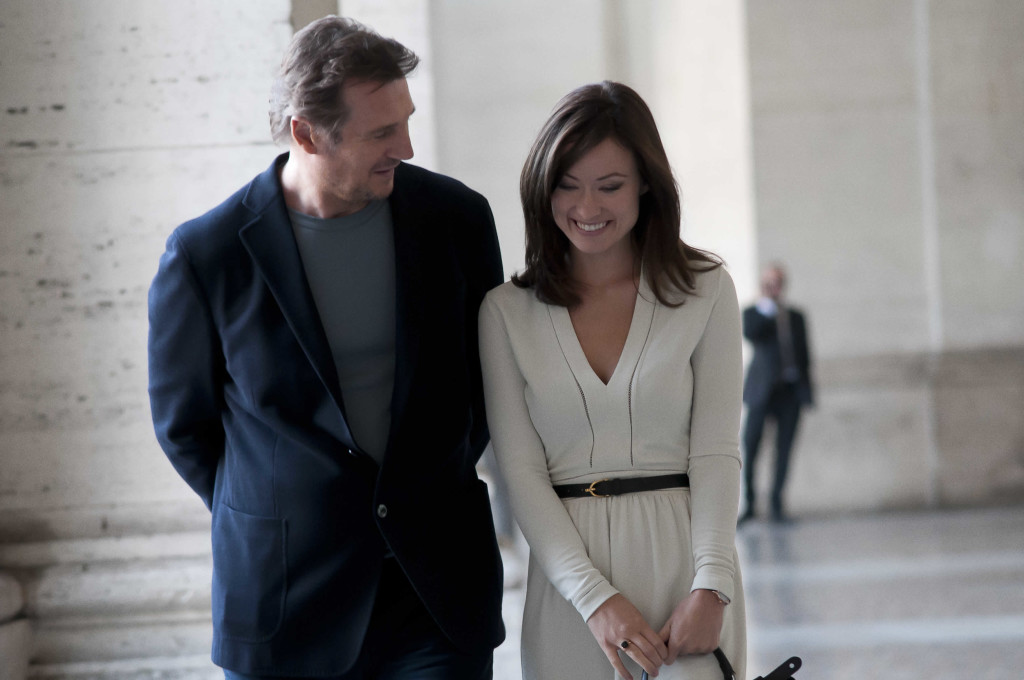 That was really a great film. What’s curious about you is that you don’t seem to work as much; you really space your films out over time.
That was really a great film. What’s curious about you is that you don’t seem to work as much; you really space your films out over time.
I work all the time, but it takes me a long time to make a movie. This one was almost six years. I started writing it the day after I finished shooting The Next Three Days. One of the actresses in that film said, ‘You should do a multi-character story like Crash, only about relationships.’ I thought that was interesting because the longer I live, I seem to know less about them. Every year I live I know less about love. I liked the idea of questioning things I could not figure out from my relationships, and how you deal with an impossible person; to start with, I’m an impossible person. So I thought perhaps I could play those out. And those questions are in the story.
I’ve heard you say on occasion that Third Person is highly reflective and autobiographical.
Yes. It’s all true—just that none of it happened; not the way it happens in the movie. I’ve had all of those thoughts and these lines of dialogue have been said to me, and others. That line, Don’t try to get sympathy Paul; I’m sure I will be reading this in the next draft, is something that my wife said to me. When my producer saw the rough cut, he said, ‘Paul, you can’t put that in there. He comes off like such an asshole.’ And I said, ‘That is what we do.’ We take those moments that are emotionally charged and use them.
So you catalogue your experiences in life for your screenplays.
Yes. The gypsy story came from when I was promoting In the Valley of Elah in Italy several years ago.I was watching the way that people were talking about the Romanian ‘problem’ and gypsies. I wondered what it must be like to walk into the room and automatically be judged. And I loved this character of the American who absolutely hates Italy! My dad is like that. You take him anywhere, and to him nothing in the world is better than Ontario. We’ll be looking at European architecture from the 14th century and he will say, ‘Can’t they afford some aluminum siding? They should fix it up!’
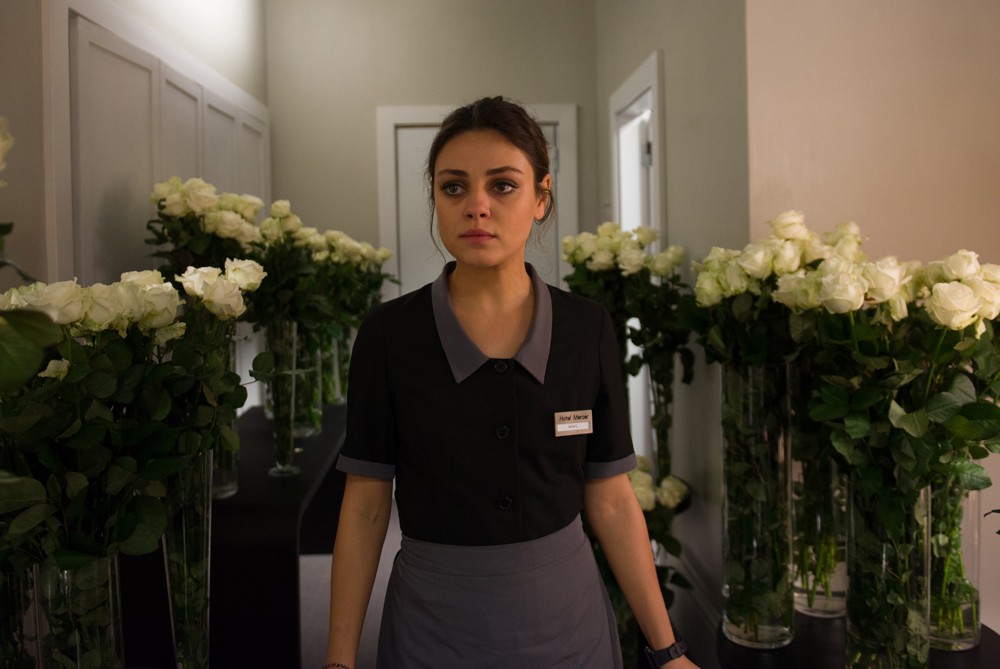 While about love in several forms, Third Person isn’t reassuring or sentimental. It forces us to sit up and think, examine its labyrinth, evaluate. One could say that it’s pessimistic about love, rather than hopeful.
While about love in several forms, Third Person isn’t reassuring or sentimental. It forces us to sit up and think, examine its labyrinth, evaluate. One could say that it’s pessimistic about love, rather than hopeful.
You know, I think it’s both. Because you have a characters that decide to trust no matter how much you say, ‘I should not believe them; instincts are telling me no.’ But they still decide to put aside that skepticism and to trust. The more you risk in love, the more likely you are to win. Or as in the Olivia Wilde character’s case, she opens up to trust and to see what happens. She’s been trying and pushing away, saying, ‘I can’t trust you. You have a wife.’ And then you’ve got James Franco’s character, who knows he is right and all he has to do is get her to look at that, and there will be forgiveness. But that doesn’t work when you force someone to look into a mirror. So it’s not love that is pessimistic, but rather the way we approach it, and the skepticism or baggage we bring, and how we force the other to be better than ourselves, rather than just being better ourselves.
There’s a striking, haunting moment in the film where Olivia enters a hotel room filled with white roses. The performance, score and shot perfectly coalesce into something grand.
Yes. I wanted to convey what it is like to be accepted, which is what we want. We want to be seen and accepted, with all of our flaws. Sometimes that is not easy for us. Some characters in the movie are damning themselves, and then when someone else forgives them it is almost too much to take. It is transformative, but you see how angry she gets. And you see Liam being led to something he doesn’t want to see. In Mario Bello, you have a woman who is condemning her husband and will never forgive him. And then of course, you see Mila longing to be forgiven and so angry that she is not.
She’s an emotional access point in the film and hasn’t really handled a character this complex in the past, which is not a knock on her at all.
She stretched.
What you just described reminded me of Lena Olin’s character, Sabina, in Philip Kaufman’s The Unbearable Lightness of Being, who when truly loved by a married man who leaves his wife for her, flees. She can’t accept that he wants the real her. I’m sure you have seen the film.
Yes, oh of course! Great! You see that with Olivia here. Michael leaves his wife for her and she is immediately enraged. She can’t trust him anymore. She can trust an affair, but this is too much. It has got to be false.
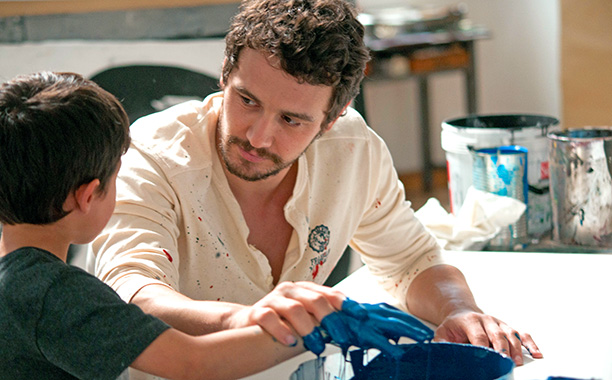 You’re somewhat known for multi-layered, multi-character pictures, at least with Crash and now Third Person. Do you approach that screenwriting with a sort of overriding philosophy that you must make the theme present in every scene; give every character a full arc?
You’re somewhat known for multi-layered, multi-character pictures, at least with Crash and now Third Person. Do you approach that screenwriting with a sort of overriding philosophy that you must make the theme present in every scene; give every character a full arc?
Oh, I wish! And no, I don’t. And for that reason sometimes some movies are more flawed than others. In this one, the stories are quite unbalanced and for a couple reasons. Some have less screen time than others, like the Franco and Kunis story, because that is how it played out in my head.
But you give us a punch with that one at the end.
Yes, a couple of punches. Some of that is because I couldn’t shoot in New York and so I decided to cut some of those scenes and not replace them. But also just because there are certain things you have to do- like in Crash, I wanted all stories to play for the same time frame. I knew that. So I was pushing each story into four days. So that dictated where I picked up and ended the story. But that was my only concern. Thematically, I don’t know where I am going. I had Liam’s story and then figured out the rest.
The look of Third Person is what I might call elegantly cold.
I was going for three particular looks, one for each city, and I was fortunate enough to work with Gianfilippo Corticelli, an amazing DP whom I admire and who did all of Sergio Castellitto’s movies.
Yes. Don’t Move, with Penelope Cruz, is one that I really love.
It’s amazing!
What a great melodrama.
It’s great! So we took a long time discussing how the colors and fabrics should look.
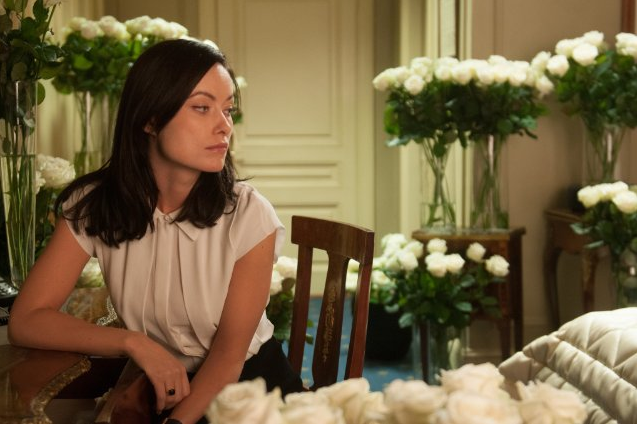 And you shot all of the hotels in the studio, in Rome, correct?
And you shot all of the hotels in the studio, in Rome, correct?
We built them all. It became too expensive to shoot in the actual cities and hotels are expensive because you have to buy out full floors, and you’re talking about expensive hotels. (In the versions we built), even though the furniture and treatments are different, the layouts are exactly the same in Paris and New York. Somewhere in the back of your mind there is a link. There was no way you would find that in a practical setting. I was able to go Paris and New York only for very brief exteriors.
What is the best part about your job?
I love watching the actors come to life and take me places and surprise me. It’s great.
Do most actors now want to work with you? Given the successes you have had, you can call upon them and secure them?
I’m fortunate that actors want to work with me, and I think probably because I offer them roles that they don’t usually get to play. So it’s not me. It’s the fact that you are giving them roles that others might not think of them for, and they say, ‘Yeah, that would be fun.’ In this case, all I had to say was ‘Come to Rome.’
Let’s talk about Olivia Wilde for a moment, who when she first hit the scene was quite beautiful and appealing to look at, and it made sense why she was in the movies. But she’s evolved into a real actress. For example, her work in Her last year—in just two scenes—was really fascinating.
Oh, wasn’t that a great movie? I loved that! I loved her in it.
In almost no screen time, she created the most offbeat person.
I thought she was spectacular. Of course, when we cast her it took a little while to get the producers to take her seriously and they said ‘Come on, Cowboys and Aliens and Tron? Does she have any depth?’ I said, ‘Yeah, she does.’ And she just hadn’t been challenged. It was a hard sell. And she didn’t have the kind of celebrity back then that she has now, either.
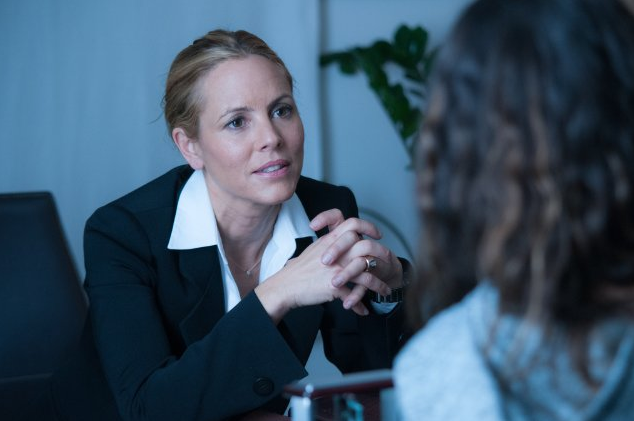 Is it true that you wrote fifty drafts of the screenplay?
Is it true that you wrote fifty drafts of the screenplay?
That’s hyperbole, but at least twenty-five. And this was six to eight hours a day, six days a week. I wanted to allow those characters to take me where I wanted to go. You want to force your characters into situations that will work for you as a dramatist. There is a comfort in that. But you only want to open yourself up so much. Then you dig deeper and the characters take you deeper. But with Liam’s character, I was trying to discuss what my process was. I get somewhere deep, but that’s kicking and fighting and not wanting to go there.
I distinctly remember the look on your face when you when the Oscar for Crash. What did that do for you?
Yes, it was total shock! Well, being nominated three years in a row and then winning a couple of Oscars was. I was a failed TV producer and director. None of my shows would ever be remembered, and the ones I was proudest of, like Easy Streets, didn’t last. That was shot here in Chicago. So this was a big risk with a very small film. Just to get it into the theaters was amazing and due to the cast, and then to be nominated? I remember in about July the Lionsgate people said they were thinking about a campaign. And I said, ‘That’s great for the actors.’ They said, ‘No for best picture.’ I said, ‘No, don’t. It’s a little picture and I will be embarrassed.’ Then we got the nomination and I was thrilled. I knew we weren’t going to win: ‘Please! It is a little film about race, pointing the finger at liberals. And the Academy is all liberals! They are not going to fucking vote for me.’ So during those dog and pony shows, I went to France to write something. I was sick of it and thought, ‘I can’t put myself through that anymore.’ So I went to France and came back and people said, ‘Crash has a good chance of winning.’ And I said, ‘Thank you, thank you.’ I was stunned. You want to have a good face when you lose. Ang Lee and the producers were sitting across from me. And I actually turned myself around in the seat to look at them and applaud when they won. And then (Jack Nicholson) said, ‘Crash,’ and a thought went through my head, and then I see my wife standing and I thought, ‘Does she like Ang Lee that much? Holy shit!’ I didn’t think we were going to win and I didn’t have a speech. And (producer) Cathy Schulman had a speech, because she had been in town and she figured it out. I didn’t have anything to say, so I’m so glad I didn’t.
Is it an onus to have the moniker of “Oscar-winning director” preceding you?
No, no. The hardest thing is to find and tell a good story, and that onus is on my back all the time; to do something that excites me. I was really in love with the filmmakers of the 60s and 70s, especially the French and Italians; or perhaps Bunuel, Antonioni, Fellini, Godard and Truffaut. They were telling stories that asked more questions than provided answers. I remember going out in the street and talking to my friends afterwards and would say, ‘What the hell is this about? It’s supposed to be a murder mystery but there is no resolution, and it ends in a tennis game between mimes!’ So in this picture, I purposely decided to use that format, which is not a type of storytelling we do a lot anymore.
You mention the great directors. What does it mean that the average director today doesn’t know or reference them at all?
I think we push ourselves into boxes as filmmakers. We see what sells and what the studios want, and so we push ourselves into that. I was never successful at that. I tried to sell out so many times. I tried to always chase the movie that everybody wanted. I failed at it over and over until I got sick of it and got fired from my television show and decided to write exactly what I wanted. And I wrote Crash and Million Dollar Baby. I gave those scripts to the few friends I had in the movie business. They said, ‘Really good scripts, Paul, but they will never sell.’ It took me years to get those made. And the fact that they were successful stunned me. Having Clint Eastwood attached (to Million Dollar Baby) was gold, but with Crash, who figured it? So I wanted to keep that up. And that’s why, when I was offered every movie under the sun after that—big movies—I did In the Valley of Elah. I knew it would be unpopular, because it was a time when even liberals were supporting the war back then and said, ‘We have to stand together; we have to support our president.’ I said, ‘I don’t think so. I think it’s an artist’s responsibility to speak up.’ So I knew people would dislike that, or probably just not even go. And that’s what happened. But I would do it again.
